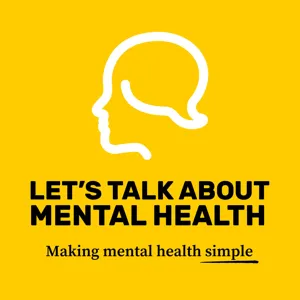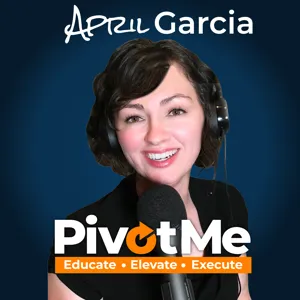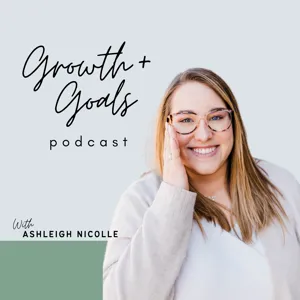Podcast Summary
Desire to live intentionally with less clutter: Expert interviews revealed the common theme of reducing clutter for better mental and emotional wellbeing, leading to intentional living with cherished items.
Regardless of whether someone identifies as minimalist or maximalist, everyone struggles with clutter and its impact on mental and emotional wellbeing. Shira Gill, a values-based organizing expert, author, and coach, explored this concept in her latest book, "Organized Living," where she interviewed 25 organizers from diverse backgrounds and home sizes. Despite the differences, Shira found a common theme: the desire to live more intentionally with less stuff and the negative effects of clutter on anxiety, overwhelm, and stress levels. By sharing distinct organizing strategies from these individuals, Shira aims to help people create space for the things they truly care about and reduce feelings of being overwhelmed.
Discover what truly matters to you in getting organized: A values-based approach to organization focuses on optimizing your space and life by considering what matters most to you, rather than conforming to societal expectations or striving for perfection.
A values-based approach to organization goes beyond the mainstream methods we see on TV or social media. Instead of focusing on achieving a cookie-cutter level of perfection, it's about optimizing your space and life by considering what matters most to you. This means starting with the "why" of getting organized and examining what you want to make room for in your life. By doing so, you can effectively determine whether your possessions are helping or hindering your progress towards your goals. It's essential to recognize that being organized is a tool, not an end goal in itself. Additionally, the pressure to conform to societal expectations of how a home should look and the belief that organization is inherently virtuous can hinder individuals from embracing their unique needs and preferences. Ultimately, a values-based approach to organization empowers individuals to create a living environment that aligns with their personal values and supports their overall well-being.
The ongoing process of organization: Focus on volume, systems, and habits for effective organization. Adapt to life's dynamics and challenge societal expectations.
Organization is not a one-time, perfect solution but rather an ongoing process. As an organizing expert, it's essential to help individuals define their vision of organizing and debunk the myth of a promised land where everything stays perfectly in place forever. Instead, we should focus on the pillars of organization: volume, systems, and habits. Volume involves intentionally curating possessions, systems simplify organizing those items, and habits maintain the order. It's crucial to remember that life is dynamic, and we must adapt our organization methods accordingly. Additionally, it's important to challenge societal expectations that women are solely responsible for maintaining a tidy home, which can negatively impact their mental health. Instead, let's embrace the reality that organization is an ongoing journey, not a destination.
Seeking Help with Organizing: It's okay to hire an organizing expert if you struggle with organizing despite your best efforts. Everyone has unique strengths and weaknesses, and organizing is not about perfection but functionality and efficiency.
Organizing is a powerful and satisfying way to make decisions about the things we own and the spaces we inhabit. However, for some people, the spatial element of organizing can be challenging. If you find yourself struggling with organizing despite your best efforts, don't be ashamed to hire an expert. Organizing and quantum physics require different skill sets, and it's okay to seek help when needed. The shame and self-criticism surrounding the need for organizing assistance is a common theme, but it's important to remember that everyone has unique strengths and weaknesses. Organizing is not about perfection, but rather about creating a functional and efficient living environment. So, if you're feeling overwhelmed, consider bringing in an expert to help you make decisions about where things belong and how to maintain an organized space. Ultimately, the goal is to reduce stress and improve overall well-being.
Decluttering reduces mental and emotional clutter: Organizing space saves time, reduces cognitive load, and addresses mental blocks to simplifying, leading to a more manageable and organized living space.
Organizing your space can significantly reduce mental and emotional clutter by creating visual boundaries and making it easier for your brain to identify and locate items. This not only saves time but also reduces the cognitive load on your brain. Scarcity mindset and emotional attachment to items, especially those given as gifts, can be major obstacles to decluttering. Addressing these mental blocks and focusing on the benefits of simplifying can lead to a more manageable and organized living space. Additionally, excessive consumption and volume of possessions are significant contributors to clutter, making it essential to address both the organization and the volume of items in your home.
Release guilt and focus on future-oriented mindset: Focus on creating a space that supports future goals, release guilt over past spending, and adopt a forward-thinking perspective to transform your living space and relationship with possessions.
Instead of keeping unwanted items out of guilt or fear of the past, it's essential to focus on creating a future-oriented mindset and curating a space that supports your goals. The shame and guilt surrounding past spending and overconsumption can be overwhelming, but it's crucial to release these feelings and channel the energy into mindful consumption and sustainable living. The 20-rule, such as only keeping items if they can be purchased for less than $20 in under 20 minutes, can be a helpful guideline. Moreover, coaching can play a significant role in this process, helping individuals shift their focus from dwelling on past mistakes to building a desired future. By adopting a forward-thinking perspective, individuals can transform their living spaces and their relationship with material possessions.
Shopping as a coping mechanism: Explore root causes, practice a purchasing pause, address underlying emotions, and engage in thought work for personal growth
Excessive shopping can be a coping mechanism for deeper emotional issues. Instead of focusing on the shame of accumulating unwanted items, it's essential to be curious and explore the root causes. Many people turn to shopping as a numbing agent to avoid dealing with painful emotions or feelings of loneliness, stagnation, or loss. A purchasing pause, where one doesn't buy anything unnecessary for a specific period, can help individuals confront their thoughts and emotions. By addressing the underlying issues, one can break the cycle of shopping as a band-aid solution and focus on long-term growth and self-acceptance. Additionally, it's crucial to recognize the societal pressures that encourage the belief that buying things can make us happier or more confident. Instead, engaging in thought work and replacing harmful behaviors with healthier alternatives can lead to true personal fulfillment.
Addressing underlying emotions for effective solutions: Identifying emotional needs and finding healthier coping mechanisms can be more effective than just organizing or decluttering.
Identifying and addressing the underlying emotions behind compulsive shopping or hoarding can be a more effective solution than just trying to organize or declutter. For instance, a nurse client of mine who was dealing with stress and trauma during the COVID-19 pandemic was unconsciously shopping and overeating. When we talked about her feelings, she identified her love for nature and connecting with friends as alternatives to these harmful behaviors. By recognizing and addressing her emotional needs, she was able to find healthier ways to cope. However, dealing with clutter and excess possessions in a household, especially when children are involved, can be a challenge. It's essential to establish physical boundaries and give kids agency in their choices. While I might prefer minimalist, Scandinavian toys for my kids, they might prefer their googly-eyed stuffies or dirty sticks. Allowing them to make decisions and set their own boundaries can help teach them the value of decision making and having limits. Ultimately, it's about finding a balance between organization and respecting individual preferences.
Teaching children about limits with the 'treasure box' method: Encourage decision making skills in children by implementing the 'treasure box' rule: one item in, one item out, while allowing them to manage their belongings within set boundaries.
Teaching children about limits and decision making is crucial for their development. A simple and effective way to do this is by implementing the "treasure box" method, where each child has a designated space to store their belongings, with a rule of "one in, one out." Parents should allow their children to make decisions about what they keep, while setting boundaries for shared living spaces. The book "Real Homes, Real Organizing: Inspiring Stories from the World's Leading Home Organizers" offers real-life examples of this concept in action from experts around the world. By showcasing various home organization strategies, the book provides valuable insights and inspiration for families looking to implement similar systems in their own homes.
Expert Stories and Strategies for a Clutter-Free Home: Learn from 25 experts' unique approaches to organizing their homes and apply actionable tips to your own space.
The upcoming organization book, "The Art of Organizing: 25 Expert Stories and Strategies for a Clutter-Free Home," offers a variety of relatable and customizable solutions for organizing a home, catering to different personal styles, values, and backgrounds. The author, who is passionate about making organization accessible to all, carefully selected 25 experts and visited their homes to understand their unique approaches. Each chapter concludes with actionable tips, takeaways, and strategies for readers to apply to their own homes. The book also includes thematic cheat sheets addressing common challenges like working from home, living with kids, and small space living. Preorders are available starting now, and the book will be released on October 3rd. Readers can purchase it from various retailers, including Amazon, Barnes & Noble, and local bookstores. The book is visually engaging and offers a fresh perspective on organization, demonstrating that everyone can live an organized life while staying true to themselves.
Exploring Shiragill's Platform and Offerings: Listeners can engage with Shiragill through her website, social media, Substack, and community The Clutch for personalized help and growth opportunities.
Shiragill, the host of the Unfuck Your Brain podcast, is an accomplished author, speaker, and coach who can be found on various online platforms including her website shiragill.com, Instagram (@shiragill), and her new Substack. She encourages listeners to preorder her upcoming book and offers workshops, audio segments, and bonuses through her Substack. Additionally, she invites listeners to join The Clutch, the podcast community for Unfuck Your Brain, where they can receive individual help applying the concepts, learn new coaching tools, and connect with like-minded individuals. The Clutch is guaranteed to change lives. Shiragill emphasizes the importance of organization and encourages listeners to take action in their own lives. Overall, Shiragill's message is one of empowerment, growth, and community.






